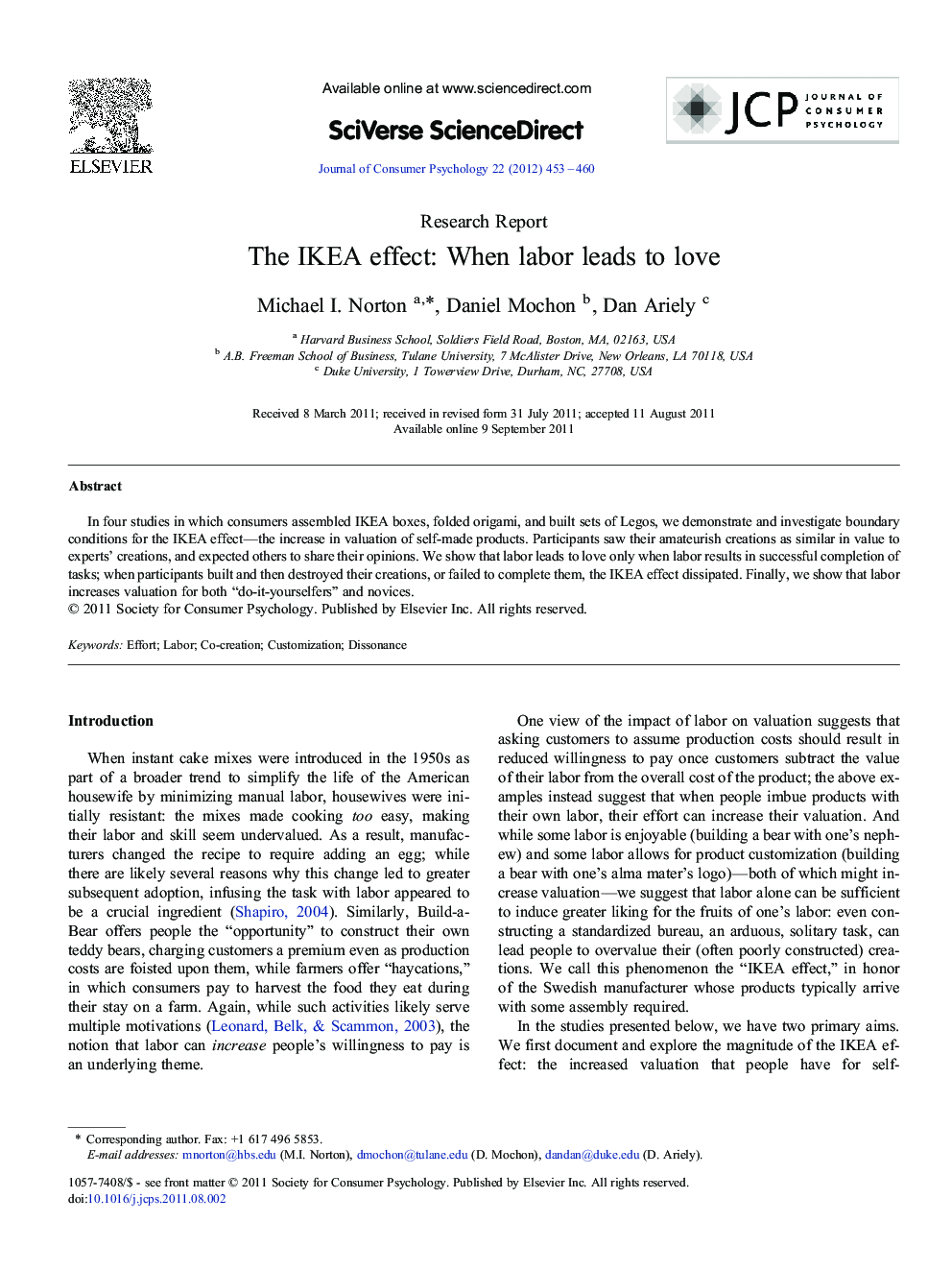| Article ID | Journal | Published Year | Pages | File Type |
|---|---|---|---|---|
| 882098 | Journal of Consumer Psychology | 2012 | 8 Pages |
Abstract
In four studies in which consumers assembled IKEA boxes, folded origami, and built sets of Legos, we demonstrate and investigate boundary conditions for the IKEA effect—the increase in valuation of self-made products. Participants saw their amateurish creations as similar in value to experts' creations, and expected others to share their opinions. We show that labor leads to love only when labor results in successful completion of tasks; when participants built and then destroyed their creations, or failed to complete them, the IKEA effect dissipated. Finally, we show that labor increases valuation for both “do-it-yourselfers” and novices.
Related Topics
Social Sciences and Humanities
Business, Management and Accounting
Marketing
Authors
Michael I. Norton, Daniel Mochon, Dan Ariely,
